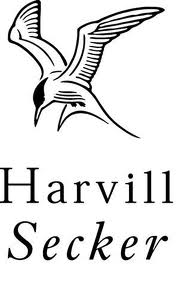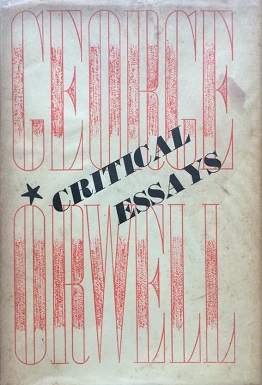Related Research Articles

Animal Farm is a beast fable, in the form of a satirical allegorical novella, by George Orwell, first published in England on 17 August 1945. It tells the story of a group of anthropomorphic farm animals who rebel against their human farmer, hoping to create a society where the animals can be equal, free, and happy. Ultimately, the rebellion is betrayed, and under the dictatorship of a pig named Napoleon, the farm ends up in a state as bad as it was before.

Eric Arthur Blair, better known by his pen name George Orwell, was an English novelist, essayist, journalist, and critic. His work is characterised by lucid prose, social criticism, opposition to totalitarianism, and support of democratic socialism.
A memory hole is any mechanism for the deliberate alteration or disappearance of inconvenient or embarrassing documents, photographs, transcripts or other records, such as from a website or other archive, particularly as part of an attempt to give the impression that something never happened. The concept was first popularized by George Orwell's 1949 dystopian novel Nineteen Eighty-Four, where the Party's Ministry of Truth systematically re-created all potentially embarrassing historical documents, in effect, re-writing all of history to match the often-changing state propaganda. These changes were complete and undetectable.
"England Your England" is an essay written by the English author George Orwell during The Blitz of 1941 as bombers of Nazi Germany flew overhead. It was his attempt to define English culture and the English people for the rest of the world as he feared that it might soon be wiped out by the Nazis. In the essay he also wrote that England would not change into a fascist state and could not unless she was thoroughly broken.

Harvill Secker is a British publishing company formed in 2005 from the merger of Secker & Warburg and the Harvill Press.

Fredric John Warburg was a British publisher, who in 1935 founded the company Secker & Warburg. He is best known for his association with the author George Orwell. During a career spanning a large part of the 20th century and ending in 1971, Warburg published Orwell's major books Animal Farm (1945) and Nineteen Eighty-Four (1949), as well as works by other leading figures such as Thomas Mann and Franz Kafka. Other notable publications included The Third Eye by Lobsang Rampa, Pierre Boulle's The Bridge over the River Kwai, Adolf Hitler's Mein Kampf and William Shirer's The Rise and Fall of the Third Reich.
"The Lion and the Unicorn: Socialism and the English Genius" is an essay by George Orwell expressing his opinions on the situation in wartime Britain. The title alludes to the heraldic supporters appearing in the full royal coat of arms of the United Kingdom. The essay was first published on 19 February 1941 as the first volume of a series edited by T. R. Fyvel and Orwell, in the Searchlight Books published by Secker & Warburg. Orwell's wife Eileen Blair described the theme of the essay as "how to be a socialist while Tory."
Iris Vivienne Morley was an English historian, writer and journalist.
Reynold's News was a Sunday newspaper in the United Kingdom, founded as Reynolds's Weekly Newspaper by George W. M. Reynolds in 1850, who became its first editor. By 1870, the paper was selling more than 350,000 weekly copies. George died in 1879, and was succeeded as editor by his brother, Edward Reynolds.
"My Country Right or Left" is an essay published in 1940 by the English author George Orwell. In it Orwell seeks to reconcile his intense feeling of patriotism and his left-wing views.
"Some Thoughts on the Common Toad" is an essay published in 1946 by the English author George Orwell. It is a eulogy in favour of spring.

The bibliography of George Orwell includes journalism, essays, novels, and non-fiction books written by the British writer Eric Blair (1903–1950), either under his own name or, more usually, under his pen name George Orwell. Orwell was a prolific writer on topics related to contemporary English society and literary criticism, who has been declared "perhaps the 20th century's best chronicler of English culture." His non-fiction cultural and political criticism constitutes the majority of his work, but Orwell also wrote in several genres of fictional literature.

Nineteen Eighty-Four is a dystopian social science fiction novel and cautionary tale by English writer George Orwell. It was published on 8 June 1949 by Secker & Warburg as Orwell's ninth and final book completed in his lifetime. Thematically, it centres on the consequences of totalitarianism, mass surveillance and repressive regimentation of people and behaviours within society. Orwell, a democratic socialist, modelled the authoritarian state in the novel on Stalinist Russia and Nazi Germany. More broadly, the novel examines the role of truth and facts within societies and the ways in which they can be manipulated.
The English People is an essay by English author George Orwell, first published in August 1947. It was commissioned in September 1943 by W. J. Turner, Collins's general editor, for the series Britain in Pictures. The idea for the series came from the Ministry of Information. It was published with twenty-five illustrations, eight of which were full-page colour plates, and included work by artists Edward Ardizzone, Dame Laura Knight, L. S. Lowry, Henry Moore, John Minton, and Feliks Topolski. Written during World War II, it presents Orwell's vision of what it meant to be "English".
Peter Hobley Davison OBE was a British professor of English and an authority on the life and works of George Orwell.
Ian Angus was a British librarian and a scholar on George Orwell.
Raphael Joseph Feiwel, better known as Tosco R. Fyvel or T. R. Fyvel, was a writer, journalist and literary editor. In 1936–1937, he was active in the Zionist movement in Palestine, then under the control of the British mandate, and worked with Golda Meir.

Critical Essays (1946) is a collection of wartime pieces by George Orwell. It covers a variety of topics in English literature, and also includes some pioneering studies of popular culture. It was acclaimed by critics, and Orwell himself thought it one of his most important books.
Reginald William Foster was a British journalist who specialised in crime reporting and, because he covered fires as well, was known as "Fireman Foster". He was the first reporter to arrive at the scene of the fire that destroyed the Crystal Palace in 1936. In 1963, Foster, then a freelance reporter for the Daily Sketch, and fellow reporter Brendan Mulholland, of the Daily Mail, known as the 'Silent Journalists', were sentenced to prison terms for refusing to reveal their sources to the Vassall Tribunal.
Storm over Spain is a book by Mairin Mitchell, a pacifist commentary on the Spanish Civil War, published in 1937 while the war was ongoing.
References
- ↑ Costello, David R. (1989). "Searchlight Books and the Quest for a 'People's War', 1941-42", in: JContHist 24, 1989, p. 257. Journal of Contemporary History . Retrieved 18 June 2013.
- 1 2 Leab, Daniel J. "George Orwell The Lion and the Unicorn: Socialism and the English Genius."
- ↑ Štanský, Peter (2007). The First Day of the Blitz: September 7, 1940, p. 190. Yale University Press. Google Books. Retrieved 18 June 2013.
- ↑ Watson, George and Ian Roy Willison (1969). The New Cambridge Bibliography of English Literature, Volume 1. p. 691. CUP Archive. Google Books. Retrieved 18 June 2013.
- ↑ The end of the "old school tie" (Book, 1941) [WorldCat.org]. WorldCat.org. Retrieved 26 May 2016.
- ↑ Horizon , p. 219. September 1941
- ↑ Remembering George Orwell: "Foreword". Retrieved 18 June 2013.
- ↑ The moral blitz: war propaganda and christianity (Book, 1941). worldcat.org. Retrieved 10 July 2022.
- 1 2 Newsinger, J. (1999).Orwell's Politics, pp. 77-86. Springer. Google Books. Retrieved 27 October 2017.
- ↑ Atthill, Robin (1942). The Dublin Review, Volumes 210-213, pp. 87–88. The Dublin Review . Google Books. Retrieved 6 July 2023.
- ↑ Searchlight Books (Secker & Warburg) - Book Series List. worldcat.org. Retrieved 10 July 2022.
- ↑ Wilford, Hugh (2003). The CIA, the British Left and the Cold War: Calling the Tune?, p. 13. Routledge. Google Books. Retrieved 18 June 2013.